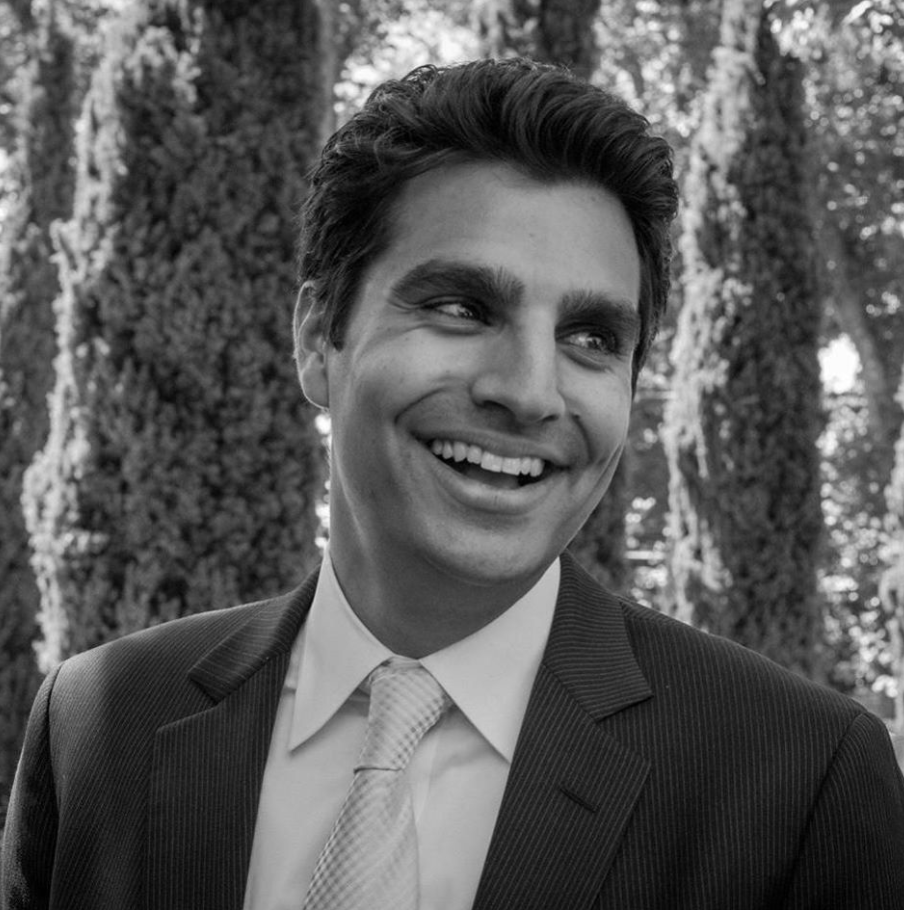
by Akemi Tamanaha, Associate Editor
On Friday morning, armed with a cup of homemade lemongrass chai, Jonathan Mehta Stein began his first day as executive director of California Common Cause.
The non-partisan political advocacy group announced Stein as their new executive director on Thursday, April 30. The announcement was followed by a conversation between Stein and outgoing executive director Kathay Feng on Facebook live. AsAmNews spoke with Stein about his work as an advocate and his plans for California Common Cause.
Stein, who currently lives in Oakland, considers himself a “California kid through and through.” He grew up in Cupertino, California from the late 80s through the 90s when much of the area was still filled with orchards.
Stein’s father was White and his mother was an Indian American immigrant. She came to the US without money and access to networks. Her experience, according to Stein, was what “one might expect for an immigrant woman with an accent in the Midwest in the 1970s.”
“In many ways I do what I do because of my mom and her experience as an immigrant,” Stein said.
His mother taught Stein and his brother from a very young age that every voice matters. She also made sure that he and his brother understood that as two American White men they would have opportunities she never had.
“I took from that a sense of service that I had a responsibility to use the relative privilege that I have,” Stein said.
Stein attended Lynbrook High School, a school in Cupertino near San Jose, whose student body is majority Asian American. After high school, he spent eight years on the East Coast after graduating high school. He attended Harvard University and earned his BA in English literature. He said that transitioning from a diverse place like Cupertino to the Northeast was a big adjustment. He knew that he would eventually return to California.
After graduating from Harvard in 2005, Stein spent four years working as a journalist before he decided to pursue a career in political advocacy.
“Over time I grew tired of writing about people who were making social and political change and wanted to be someone who made social and political change,” Stein said.

The best way to pursue a career in political advocacy was to be as prepared as possible. For Stein, that meant going to graduate school and law school to acquire the “credentials needed to take on the world.”
Stein enrolled in a public policy program at University of California, Berkeley. The program allowed him to concurrently earn his Masters in Public Policy and his JD. After graduating from law school in 2013, Stein was hired as a staff attorney for the ACLU where he worked as a voting rights attorney. In 2016, he continued his work in voting rights at the Asian Law Caucus. When Stein arrived, the Asian Law Caucus’ voting rights program had been dormant for several years. By the time he left in 2020 to work with California Common Cause, the program had grown into a state-wide leader in ensuring language access for limited English or non-English speaking voters.
Stein’s work with the ACLU and the Asian Law Caucus has been driven by the need to increase voter participation in California. The state, despite its progressive voting laws, is consistently in the bottom half of the nation on voter turnout.
Stein pointed out that there are massive racial disparities in voter turnout. In November 2018, according to research done by the California Civic Engagement Project, 33 percent of eligible Asian Americans voted and 36 percent of eligible Latinos voted. Around 60 percent of eligible non-Latino, non-Asian voters voted. Stein wants to create a California democracy that represents all of its diverse communities.
Now, he has an opportunity to continue that work at California Common Cause. Stein says his long-term vision for the organization encompasses two major priorities. One priority is to rebuild and restore trust in democratic processes.
“We are seeing cynicism at an all time high, distrust at an all time high, polarization at an all time high,” Stein said. “I want California Common Cause to be a thought leader in figuring out how we undo all of that and how we rebuild trust and credibility in our democracy.”
The second priority is acknowledging that, for many communities, trust in democratic processes never existed in the first place. He pointed out that for many communities the right to vote is “only one life-time old.” Communities of color, he says, didn’t really get the right to vote until the passage of the Voting Rights Act in 1965.

“This idea that we’re going to ‘restore democracy’ for some communities doesn’t mean anything because there’s nothing to restore it to,” Stein said.
Stein also hopes his work will help increase Asian American political participation. He says that Asian Americans are often last or tied for last in voter participation.
Why is Asian American political participation so low? Stein sees language access as “a huge part of the formula,” but says there are other explanations.
According to research released by AAPI Data in 2017, nearly 70 percent of Asian Americans report that they have not been contacted by a political party during election years. Stein says that this may occur because Asian Americans register to vote without choosing a party affiliation at higher rates than other racial and ethnic groups do. Campaigns and parties “don’t know what to do” with Asian American voters so they don’t reach out to them. As a result, many Asian Americans don’t go to the polls, making them less attractive to both political parties in the next election cycle.
Stein added that some Asian Americans may not participate for cultural reasons. A high percentage of California’s Asian American population are immigrants.
“A lot of folks are coming from countries that have no tradition of individual democratic participation,” Stein said. “In fact, a lot of folks are coming from countries where standing up and speaking out is dangerous for you and your family.”

For those Asian Americans, the path towards democratic participation is longer.
Stein says that one way to increase participation is by improving the quality of outreach with “messages and messengers” that are specific to each community.
“What they need to hear is a pro voting message from someone who comes from their community, who speaks their language, who understands their history and their experience,” Stein said.
Stein hopes that both Asian American and non-Asian American communities begin to reject the model minority myth and see Asian American political participation as important.
“The model minority myth casts Asian Americans as the successful minority group when in reality huge portions of the Asian American community are struggling,” Stein said.
He added that the socioeconomic success some Asian American groups have achieved has not translated to political opportunity and equality. Asian Americans still vote at lower rates and “see underrepresentation in elected leaders at all levels of government.”
For some Asian Americans, the model minority myth has created a false sense of security. They believe that the discrimination other minorities groups face does not apply to them.
“I think one of the stories that America has told Asian American families is that if you work hard and play by the rules, America will treat you well,” Stein said.
But discriminatory laws and practices do not have Asian American exemptions. Stein pointed out that there is no Asian American exemption to a federal public charge rule that targets immigrants. There is no Asian American exemption to deportations or to racially gerrymandered districts. To Stein, the rise in xenophobia and anti-Asian sentiment during the coronavirus pandemic makes this even more apparent.
“When you have a pandemic that originates from an Asian country there is no exemption from xenophobia that applies to Asian Americans,” Stein said.
He hopes that people will stop buying into the model minority myth.
“Asian Americans need to recognize that working hard and playing by the rules, it’s not enough,” Stein said. “You have to get involved, get engaged, be active in our politics to ensure a just America for everyone.”
AsAmNews has Asian America in its heart. We’re an all-volunteer effort of dedicated staff and interns. Check out our new Instagram account. Go to our Twitter feed and Facebook page for more content. Please consider interning, joining our staff or submitting a story.

